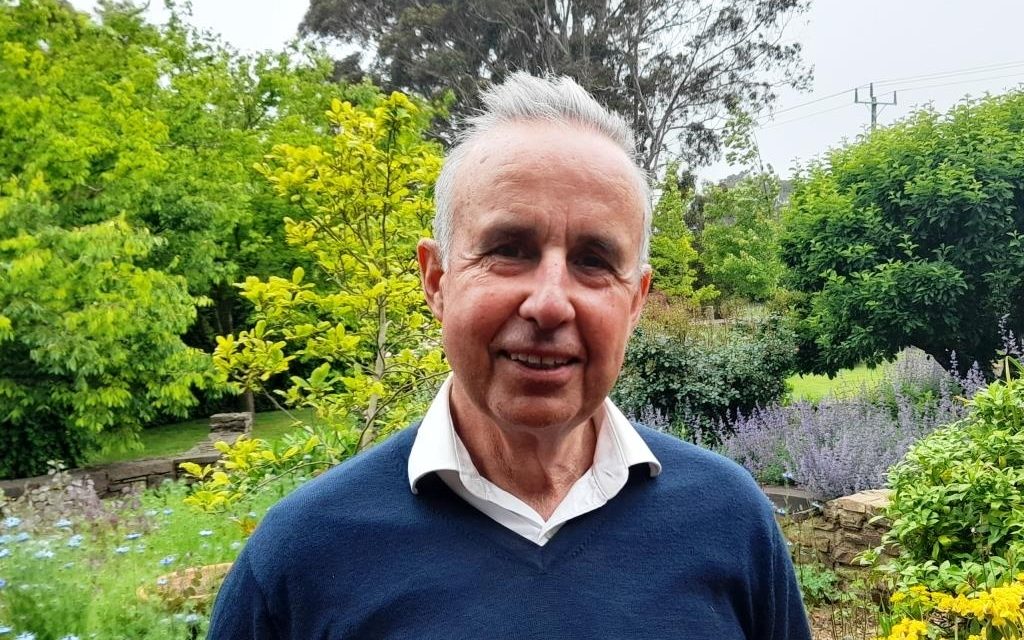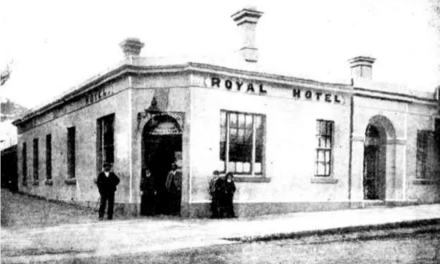Dr Greg Stewart, who has served our community as a GP for the past 32 years, retired this week. The Wombat Post talked to Dr Stewart about the health of our local community, the changes he has seen during his career and his advice about improving health in our community.
How has the health of our community changed over the years that you have been a GP here? Have there been changes for the better? Changes for the worse?
The obvious thing is that the demographic of the community is changing. The community is older and they are more health literate and aware of their options, which is a good thing. Daylesford has become more expensive so it’s harder for young families to live here. So we see fewer children and we’re dealing more with an older population. It might be because I’m getting older and my patients are getting older, but I think the town has changed in that respect.
The ageing population brings with it more complex health needs of older people. As far as the health service goes, we have so many more treatments available to us – t reatment for stroke or renal failure, for example. It’s created challenges for older physicians to keep up with evolving treatments. But that’s a good thing – people are living longer, more healthy lives.
There’s no doubt that the health of our community has improved over the past 30 years. Health campaigns and legislation around tobacco and alcohol have been very effective in improving our health. Improved automobile safety and drink driving enforcement have reduced road trauma markedly. Motor vehicle accidents were a prominent feature when I arrived but the situation is much better now. Road deaths are a quarter of what they used to be.
Obesity has increased particularly in this region of Victoria but that’s a difficult problem to address for all sorts of reasons. People in regional areas are much more dependent on cars. Opportunities for exercise are more limited. Our cold, wet winters sometimes make that hard. That’s why I’ve been active with community groups that have been promoting an indoor pool and recreation facility for Daylesford.
Springs Medical has been recognised as an innovative general practice and was awarded the College of General Practitioners award for the Best General Practice in Victoria a few years ago. You advertise special services in women’s health, lower limb rehabilitation, skin cancer and allergies to name a few. Is there one innovation that you have developed that stands out as having the greatest impact on community health?
I don’t think the practice has been successful because of our specialist clinics; I think the practice has been successful because of the cooperative, collaborative attitude that the five founding directors had. It’s been the culture of the place in a lot of ways. The collegial atmosphere has enabled specialist services to develop and grow. We’ve been able to encourage young doctors to come to study and to stay. We’ve made it easy for people, particularly young mothers, to take a prolonged break from the practice without being penalised. We’ve nurtured people to develop their talents and abilities and that has meant that we have been able to offer a range of services that aren’t often available in a rural clinical practice.
I’m particularly proud of the drug and alcohol program which I’ve been closely involved with. We’re the only methadone and suboxone prescribers for a long way around here. A lot of practices won’t do that. We feel that it’s important to deal with the needs of the community – they might be just out of jail or have serious mental health issues. I’ve been proud to be involved in that and in the way the practice has dealt with it. In many communities, it’s not possible for people to find treatment for heroin addiction.
What advice do you have for people who live here now to keep themselves healthy over the next five to ten years?
I think we’ve done very well with programs to reduce tobacco and alcohol consumption and those community health campaigns have been very effective in improving health. I think the next steps are diet and exercise. Given our obesity issue in Australia – 70% of people are overweight or obese – people need to get more exercise. They should plan to get at least 30 minutes of vigorous activity every day. People need to eat more fresh fruit and vegetables – two fruit and five vegetables every day. If we can get people to incorporate those two goals into their daily routine, it will improve community health. But it will take a long time – maybe a decade or more.
A couple of things about exercise. One: it doesn’t have to involve lycra. And two: If you can do it with a mate or a friend or a relative or a spouse, it’s going to happen; if you try to do it by yourself in a garage, it’s not. And, of course, exercising with other people has the added mental health benefits of social interaction.
Is there an aspect of your practice that you have most enjoyed?
I did obstetrics here for about 15 years. It was probably the area of medicine I enjoyed most. Up until 10 years ago we had we had an obstetrics service here. It was one of those high risk areas in a way. Things can change very quickly during a delivery and you’re never sure everything will be alright until you’ve got that healthy baby in your arms. We had a few pretty hairy ambulance rides to Ballarat with mothers in labour but thankfully we never had a disaster. But it was also the most joyous part of my practice.
GPs in rural practice don’t have the big tertiary hospital back up of GPs in metropolitan areas. Did you face situations that you weren’t well prepared for?
Well, certainly, motor vehicle accidents were challenging. Back in the day, there were ambulance drivers but no paramedics so GPs were called to MVAs. It often took a long time to get people out a vehicle, take them to the Daylesford Hospital, organise transport to Melbourne. Sometimes it took six or eight hours and we didn’t always get the best outcome.
Daylesford Hospital is currently developing a masterplan for redevelopment. What would you like to see most in that development plan?
As services have become more complicated, for Daylesford Hospital to survive and be relevant, they need to redevelop their theatre space so that they can provide services such as ear, nose and throat surgery, eye surgery, orthopaedic surgery – and Daylesford used to provide those services but they need to upgrade their sterilisation and ventilation to modern standards and those are expensive upgrades. Otherwise the hospital will slip down in relevance and tend towards a nursing home facility. But we can’t do it all here. We need to develop priorities and have a strategy and a plan.
We could do with more emergency and transitional housing in town. CHRH should have some low-cost housing for people with mental health or domestic crises and that’s currently very hard to find in town with so much of the local accommodation taken up by the short term holiday market. We could provide more transitional care. The waiting list for home care packages is up to a year or two. It’s a less costly and, for many people, preferable to being in a nursing home.
I think the focus will move away from hospitals toward care in the home and preventative health because hospitals and nursing homes are expensive places.
Is there anything else you’d like to add?
I’d like to thank the community for their generous support for me and my family and for being accepting over the years. I’ve enjoyed serving the community and I look forward to stepping back and enjoying my time here.
The Wombat Post joins the whole community in thanking Dr Stewart for his contribution and his care and we wish him a long, peaceful and enjoyable retirement.





